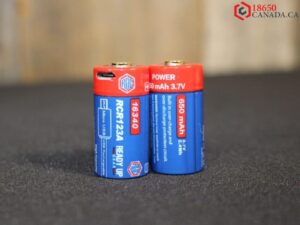Lead-acid batteries were the first secondary batteries to be industrialized. Despite being invented in 1859, they have a history of more than 150 years, yet the industry still thrives. There is a large market share for lead-acid batteries and they are the most applicable, especially in applications like starting and large-scale energy storage, where they cannot be replaced by other new batteries for a long time.
Lead-acid batteries have a relatively low price, lower energy consumption, and high safety ratings, as well as the advantage of mature technology. Lead is a relatively abundant battery metal material compared with other metals. For a relatively long time, the lead-acid battery industry will be sustained by lead reserves and regenerated lead.
Despite its widespread use, lead-acid batteries are unlikely to contribute to any shortage of lead resources in the near future. As a result of lead-acid batteries’ low energy density, short cycle life, and the use of lead as raw material, lead is a hazardous substance, lead pollution may occur during battery manufacturing and regenerated lead processing, and poor management may adversely affect the environment and human health.
The steady development of lead-carbon batteries, bipolar batteries, ultra batteries, non-lead grid batteries, and other advanced lead-acid batteries has brought about the change to low mass-to-energy ratio and short cycle life with the advent of new technologies and the application of new structures.
Advantages of Lead Acid Battery

Lead Acid Battery is a reliable battery that has many advantages. Lead Acid Battery is the most popular type of battery and it can be used in a wide range of applications. Lead Acid Battery is often used in cars, trucks, motorcycles, and boats. Lead Acid Battery is also one of the most affordable types of batteries.
Lead acid batteries are also lightweight and easy to transport. They typically last between 3 and 5 years before they need to be replaced. Lead acid batteries are also environmentally friendly because they do not release harmful chemicals when they are discharged.
Disadvantages of Lead Acid Battery
Lead acid batteries have some disadvantages that should be considered when choosing this type of battery. The main disadvantage of lead-acid batteries is that they can be very heavy. This can make them difficult to maneuver in small spaces, and can also make them difficult to remove from a vehicle if it needs to be serviced.
Additionally, lead-acid batteries are not as efficient as other types of batteries when it comes to getting power out of a battery pack. Lead acid batteries will only last around 3-5 years if used normally, and may only last for a few months if abused. This means that lead-acid batteries must be replaced regularly in order to maintain a consistent level of power.
This means that they will use more energy when starting a car or powering other devices, which can add up over time. They also require a lot of maintenance, which can be time-consuming and expensive. Finally, lead acid batteries can have a short lifespan if not used properly.
Which is Better: Lithium-Ion or Lead Acid Battery?

Lead acid batteries have been around for over 100 years and are still the most popular type of battery. They have a high power-to-weight ratio and can be discharged relatively slowly, making them good for applications where a long lifetime is required. However, they are not as energy-dense as lithium-ion batteries, meaning they require more space to store the same amount of power.
Lithium-ion batteries also offer a longer life than lead acid batteries but suffer from shorter discharge cycles and lower power ratings. Overall, lead acid batteries are reliable and practical, while lithium-ion batteries offer some advantages in terms of energy density and discharge cycles.
Conclusion
In conclusion, lead acid batteries offer several advantages and disadvantages. These batteries are reliable and can last a long time, but they take longer to charge than other types of batteries. Lead acid batteries are also heavier than other types of batteries, so they may not be the best choice for devices that need to be portable. Finally, lead acid batteries are not as environmentally friendly as some other battery types.

